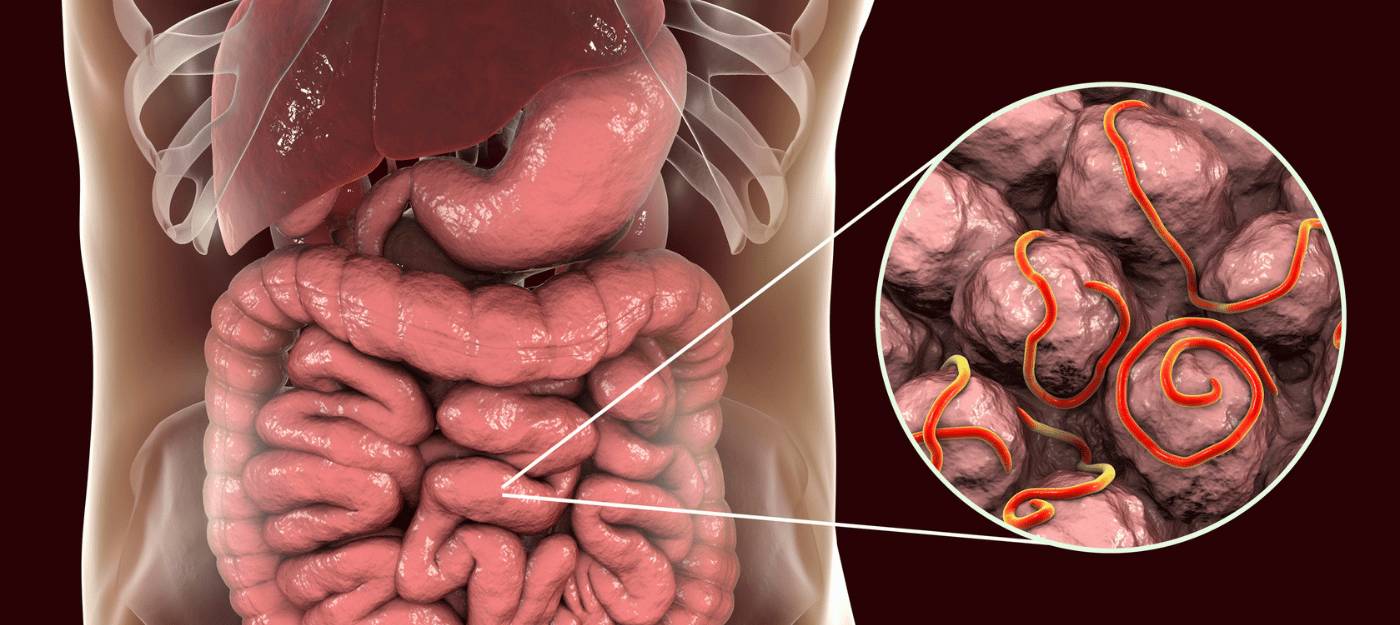Home Remedies for Better Digestion

Fun Fact: The average adult digestive tract measures around 30 feet in length!In this article, we will delve into the fascinating process of digestion, highlighting the pivotal functions of each GI tract component. Additionally, we will explore effective and natural approaches to enhance digestive health. From dietary adjustments to lifestyle modifications and home remedies for indigestion relief, we’ll uncover a plethora of strategies aimed at optimizing your digestive well-being. By understanding the inner workings of the digestive system and implementing holistic practices to support its function, you can experience improved vitality and overall wellness. Now, let’s embark on an enlightening journey through the intricacies of digestion and discover how simple yet impactful changes can foster a healthier GI tract.
Understanding Digestion and How the Digestive System Works
The process of digestion is a complex and essential function that our bodies perform every day. It allows us to break down food into smaller molecules that can be absorbed and utilized by our cells for energy, growth, and repair. To better understand digestion, let’s take a closer look at the key organs and mechanisms involved in the digestive system.The Digestion Process
Digestion begins in the mouth as we chew and grind our food, breaking it down into smaller pieces. Salivary enzymes start the process of chemical digestion by breaking down carbohydrates. From there, the food travels down the esophagus, a muscular tube that connects the mouth to the stomach. Once in the stomach, food is further broken down by gastric juices, which contain hydrochloric acid and enzymes. The stomach’s muscular walls contract and churn the food, mixing it with digestive juices to form a thick liquid called chyme. This mixture then moves into the small intestine. The small intestine is where most of the breakdown and absorption of nutrients occur. Here, digestive juices from the liver (bile) and pancreas (enzymes) are released to help break down fats, proteins, and carbohydrates. The inner lining of the small intestine is covered with finger-like projections called villi, which increase its surface area for efficient nutrient absorption. From the small intestine, undigested materials pass into the large intestine or colon. Water is absorbed here, turning waste products into stool. The colon also houses trillions of beneficial bacteria known as gut microbiota, which play a vital role in digestion and overall health. Finally, waste materials are eliminated through the rectum and anus as bowel movements.The Role of the GI Tract
The gastrointestinal (GI) tract plays a crucial role in digestion as it is responsible for transporting food along its length while breaking it down into smaller particles for absorption. The GI tract consists of several organs, each with its specific functions:- Mouth: Chewing and mixing food with saliva to begin the breakdown of carbohydrates.
- Esophagus: Propels food from the mouth to the stomach using rhythmic muscle contractions called peristalsis.
- Stomach: Stores food, mixes it with gastric juices, and breaks it down into chyme.
- Small Intestine: Absorbs nutrients into the bloodstream through its specialized lining.
- Large Intestine: Absorbs water and electrolytes while converting waste into stool.
- Rectum: Stores stool until it is ready to be eliminated.

Peristalsis and its Role in Digestion
Peristalsis is a key mechanism that helps move food along the digestive system. It is a series of coordinated muscle contractions that propel food from one organ to the next. In the esophagus, peristalsis pushes food toward the stomach, ensuring a smooth flow of digestion. In the stomach, it helps mix food with digestive juices and break it down further into chyme. Peristalsis continues in the small intestine, where it aids in the absorption of nutrients by moving them along the intestinal walls. Peristalsis is an automatic process controlled by our body’s nervous system, ensuring that digestion occurs efficiently without conscious effort on our part. Understanding how digestion works and the role of each part of the GI tract can help us make informed choices about our diet and lifestyle to support optimal digestive health.The Gut-Brain Connection: How Your Mental Health Affects Digestion
The gut-brain connection is the link between your mental health and digestion. It involves how your brain and gut communicate with each other, affecting how your digestive system works and your overall gut health.Stress and Digestion
Stress and anxiety can have a big impact on your digestion. When you’re stressed, your body goes into “fight or flight” mode, which takes energy away from your digestive system. This can lead to problems like decreased blood flow to your stomach and intestines, less production of digestive enzymes, and changes in how your gut moves food through. All of these can cause issues like discomfort, bloating, or changes in bowel movements.Did You Know? Individuals with irritable bowel syndrome (IBS) often experience worse symptoms when they’re under a lot of stress. A study published in the journal Gastroenterology found this connection.*
Mindful Eating
Mindful eating is all about being fully present while you eat and paying attention to how it feels to eat. This can help you tune in to your body’s cues for hunger and fullness, which may prevent overeating and support better digestion. Another benefit of mindful eating is that it encourages you to chew your food thoroughly and break it down well in your mouth before swallowing. This helps kickstart the digestion process and makes it easier for your body to absorb nutrients from the food. Plus, having a positive mindset around eating can also reduce any stress-related stomach discomfort you might experience.Gut Health
The link between mental health and digestion shows just how important it is to take care of your gut. Chronic stress can throw off the balance of bacteria in your gut, leading to an unhealthy environment and potential digestive problems. By finding ways to manage stress and prioritize your mental well-being, you can make a positive impact on both your gut health and how well your digestive system works. Incorporating mindfulness practices into your daily routine, such as meditation, deep breathing exercises, or yoga, can help lessen the effects of stress on your digestion. It’s also important to reach out for professional support when needed to manage stress and take care of your mental health. Remember, a healthy mind contributes to a healthy gut!1. Eat a Healthy Diet Rich in Fiber and Nutrients
Maintaining a healthy diet is essential for optimal digestion. By incorporating fiber-rich foods and gut-healthy nutrients into your meals, you can support your digestive system and promote overall well-being. Here are some key points to consider:Choose Fiber-rich Foods
Including ample amounts of fiber in your diet can regulate bowel movements, prevent constipation, and promote a healthy digestive system. Opt for whole grains like oats, brown rice, and quinoa, as well as fruits and vegetables such as berries, broccoli, and leafy greens.Prioritize Gut-Healthy Nutrients
Consuming nutrients that are beneficial for your gut health can enhance digestion. Incorporate foods rich in vitamins, calcium, and probiotics into your diet. Vitamin-rich foods like oranges, bell peppers, and spinach provide essential nutrients that support the digestive process. Calcium is found in dairy products, leafy greens, and fortified plant-based milk alternatives. Probiotic-rich foods like yogurt, kefir, sauerkraut, and kimchi contain beneficial bacteria that promote a healthy gut.Include Protein-Rich Foods
Protein is an important component of a well-balanced diet for digestion. It helps repair and build tissues in the digestive tract. Include lean sources of protein such as poultry, fish, tofu, legumes, and nuts in your meals.Stay Hydrated
Drinking an adequate amount of water is crucial for digestive health. Water helps soften stools and prevent constipation by keeping the digestive system hydrated. Aim to drink at least 8 cups (64 ounces) of water per day to support smooth bowel movements. Incorporate these tips into your daily routine to improve your digestion naturally. Remember to listen to your body’s needs and make adjustments accordingly.“A healthy diet rich in fiber and nutrients supports proper digestion by promoting regular bowel movements and providing essential nutrients for gut health.”By following these guidelines, you can nourish your body with the right foods and support a healthy digestive system.
3. Limit Processed Foods and Added Sugars
In maintaining a nutritious diet to support digestive health, it’s essential to include a variety of fiber-rich foods in your meals, such as fruits, vegetables, whole grains, and legumes. These foods not only provide essential nutrients but also promote healthy digestion. Specific nutrients that are beneficial for the gut include probiotics found in yogurt and fermented foods.Processed Foods and Digestion
Processed foods often lack the natural fiber and nutrients that whole foods contain, which can lead to poor digestion and constipation. Additionally, the high levels of preservatives, artificial additives, and unhealthy fats in processed foods may disrupt the balance of gut bacteria, affecting overall digestive function.Added Sugars and Gut Health
Excessive intake of added sugars can contribute to inflammation in the GI tract and disrupt the balance of gut microbiota. Moreover, high sugar consumption may also lead to fluctuations in blood sugar levels, impacting digestive processes. By minimizing processed foods and reducing added sugars in your diet, you can significantly improve your digestive health and overall well-being.Exercise Regularly for a Healthy Digestive System
Engaging in regular physical activity is an effective and natural way to promote proper digestion and maintain a healthy digestive system. Exercise not only benefits your overall well-being but also plays a crucial role in improving gut motility and reducing the risk of common digestive problems like constipation.Why is exercise important for digestion?
Regular physical activity is essential for maintaining good health, and it can have a positive impact on your digestive system as well. By incorporating exercise into your daily routine, you can support the efficient functioning of your gastrointestinal tract.How does exercise improve digestion?
1. Enhanced Gut Motility
One of the main benefits of exercise for digestion is its ability to enhance gut motility. When you engage in physical activity, the rhythmic contractions of your muscles stimulate the movement of food through your digestive system. This helps prevent sluggish bowel movements and promotes regularity.2. Reduced Risk of Constipation
Constipation is a common digestive issue characterized by infrequent bowel movements and difficulty passing stools. Lack of physical activity can contribute to this problem. By exercising regularly, you can encourage the smooth flow of waste through your intestines, preventing constipation and promoting better overall digestion.How much exercise do you need?
To reap the benefits of exercise for digestion, it’s important to find activities that you enjoy and that fit into your lifestyle. Whether it’s walking, jogging, cycling, swimming, or participating in sports, aim for at least 30 minutes of moderate-intensity exercise most days of the week. Remember to listen to your body and start at a pace that is comfortable for you. If you have any underlying health conditions or concerns, consult with your healthcare provider before starting a new exercise routine. Incorporating regular physical activity into your daily life not only supports a healthy digestive system but also contributes to your overall well-being. So get moving and enjoy the many benefits that exercise can bring to your digestion and overall health.3. Get Adequate Sleep and Manage Stress Levels
The Connection Between Sleep, Stress, and Digestion
Getting enough sleep and effectively managing stress are both essential for maintaining a healthy digestive system. Here’s how they impact your digestion:Sleep for Digestion
Sleep plays a vital role in restoring and repairing the body, including the gastrointestinal (GI) tract. Lack of sleep can disrupt the balance of gut microbiota, which are the beneficial bacteria that aid in digestion and support overall gut health. When this balance is disturbed, it can lead to digestive disturbances such as bloating, gas, and constipation.Stress Management
Chronic stress can have a significant impact on digestion. When you’re stressed, your body releases stress hormones like cortisol, which can affect the function of the GI tract. It can cause changes in gut motility, leading to issues like diarrhea or constipation. Additionally, stress can also contribute to inflammation in the gut, further aggravating digestive problems.Tips for Better Sleep and Stress Management
Here are some practical strategies you can incorporate into your daily routine to improve your sleep quality and reduce stress:Sleep Hygiene Tips
- Create a calming bedtime routine: Engage in relaxing activities before bed, such as reading a book or taking a warm bath.
- Make your bedroom sleep-friendly: Ensure your sleeping environment is cool, quiet, and comfortable.
- Limit exposure to screens before bed: The blue light emitted by electronic devices can interfere with your sleep-wake cycle.
- Stick to a consistent sleep schedule: Go to bed and wake up at the same time every day, even on weekends.
Stress Reduction Techniques
- Practice deep breathing exercises: Take slow, deep breaths to activate your body’s relaxation response.
- Try meditation or mindfulness: Focus on the present moment and cultivate a sense of calmness.
- Engage in regular physical activity: Exercise releases endorphins, which are natural stress-fighting chemicals in the body.
- Pursue hobbies or activities you enjoy: Doing things that bring you joy can help distract your mind from stressors.
- Prioritize self-care: Set aside time for activities that help you relax and unwind, such as taking a nature walk or listening to soothing music.
2. Try Probiotics and Fermented Foods
Incorporating probiotic-rich foods or supplements into your routine can significantly support a healthy gut. Probiotics are live microorganisms that offer various health benefits when consumed in adequate amounts. They can help restore the natural balance of gut bacteria, particularly after taking antibiotics or experiencing digestive issues. Examples of fermented foods that are beneficial for digestion include sauerkraut, kimchi, kefir, and yogurt. These foods undergo a process of lacto-fermentation in which natural bacteria feed on the sugar and starch in the food, creating lactic acid. This process preserves the food and creates beneficial enzymes, b-vitamins, Omega-3 fatty acids, and various strains of probiotics.
4. Other Lifestyle Tips for Good Digestive Health
Here are some additional lifestyle tips to improve your digestive health:- Chew your food thoroughly: Chewing food thoroughly allows for better nutrient absorption and eases the workload on the stomach and intestines.
- Eat at regular intervals: Consuming meals at regular intervals helps regulate digestion and prevents overeating or under-eating, both of which can disrupt the digestive process.
Home Remedies for Indigestion Relief
5. Apple Cider Vinegar with Warm Water and Honey
Apple cider vinegar (ACV) has been used for centuries as a natural remedy for various health issues, including digestive problems. When mixed in warm water with honey, it can act as an effective home remedy for indigestion relief. Here’s how this simple concoction can help improve digestion when consumed in moderation:How It Works
- Aids Digestive Enzymes: ACV contains acetic acid, which may help stimulate the production of digestive enzymes in the stomach. These enzymes are essential for breaking down food and facilitating nutrient absorption.
- Balances Stomach Acid: Contrary to popular belief, indigestion is not always caused by excess stomach acid. In many cases, it can result from insufficient acid levels. ACV, despite its acidic nature, is thought to help balance the pH levels in the stomach, promoting a healthier digestive environment.
- Alleviates Bloating: The antimicrobial properties of ACV may assist in reducing bloating and gas by targeting certain strains of bacteria that can lead to digestive discomfort.
- Regulates Blood Sugar: Unstable blood sugar levels can contribute to digestive issues. ACV has been studied for its potential to improve insulin sensitivity and lower blood sugar levels after meals, which may indirectly support better digestion.
Recipe and Precautions
When preparing this remedy, it’s crucial to dilute the apple cider vinegar adequately in warm water to avoid potential damage to tooth enamel and the esophagus due to its acidity. Adding a teaspoon of honey not only enhances the flavor but also provides a touch of soothing sweetness that can make the drink more palatable. Caution: While apple cider vinegar can offer benefits for some individuals, it’s important to consume it in moderation. Excessive intake may lead to adverse effects such as tooth enamel erosion or irritation of the digestive tract. As with any home remedy or dietary addition, it’s advisable to consult a healthcare professional, especially if you have preexisting health conditions or are taking medications that could interact with ACV.6. Licorice Root Tea for Soothing the Digestive Tract
Indigestion, also known as dyspepsia, refers to discomfort or pain in the upper abdomen often associated with a feeling of fullness, bloating, or nausea. Common causes include overeating, eating too quickly, fatty or greasy foods, excessive caffeine or alcohol consumption, and certain medications. If indigestion persists for more than two weeks or is accompanied by severe symptoms such as unintentional weight loss, difficulty swallowing, or persistent vomiting, it’s important to seek medical attention to rule out underlying gastrointestinal conditions.Licorice Root Tea for Indigestion
Introduce licorice root tea as a potential natural remedy for soothing indigestion due to its anti-inflammatory properties. Highlight the importance of using it cautiously and in moderation due to possible side effects such as high blood pressure and lower potassium levels. By incorporating licorice root tea into your routine, you may experience relief from indigestion-related discomfort. However, it’s essential to consult with a healthcare professional before using licorice root tea regularly, especially if you have pre-existing medical conditions or are taking medications that may interact with it.When to Seek Medical Help
Indigestion Symptoms
If you experience any of the following symptoms, it’s important to seek medical help:- Persistent or severe abdominal pain
- Unexplained weight loss
- Difficulty swallowing
- Vomiting blood
- Black, tarry stools
When to See a Doctor for Digestive Issues
Here are some situations where you should consider seeing a doctor for your digestive issues:- If indigestion symptoms persist for more than two weeks despite home remedies.
- If there is a noticeable change in bowel habits lasting more than a few days.
- When symptoms interfere with daily activities and quality of life.
- If there is a family history of gastrointestinal diseases or cancer.
- In the presence of alarming symptoms such as unexplained weight loss or difficulty swallowing.
Research Data and References
Citing credible research studies that support the effectiveness of natural methods and home remedies is crucial in providing evidence-based recommendations for improving digestive health. Here are some key studies and reliable sources where readers can find further information on maintaining a healthy digestive system:1. Effectiveness of Probiotics
A systematic review published in the International Journal of Food Sciences and Nutrition found that probiotics can help alleviate symptoms of irritable bowel syndrome (IBS) and improve overall gut health. Source2. Role of Fiber in Digestive Health
Research from the Harvard T.H. Chan School of Public Health highlights the importance of dietary fiber in promoting regular bowel movements and preventing constipation. Source3. Impact of Stress on Digestion
The National Institute of Diabetes and Digestive and Kidney Diseases (NIDDK) provides valuable insights into the link between stress, anxiety, and digestive disorders such as irritable bowel syndrome (IBS). Source By referring to these reputable sources and scientific studies, readers can gain a deeper understanding of how natural methods and home remedies can positively influence digestive health. It’s important to rely on evidence-based information when making lifestyle changes to support overall well-being.Conclusion
Incorporate the discussed strategies into your lifestyle for long-term digestive wellness. Remember:- Healthy eating is key: Fill your plate with fiber-rich foods like fruits, vegetables, whole grains, and legumes.
- Stay hydrated: Drink plenty of water throughout the day to help keep your digestive system running smoothly.
- Get moving: Regular exercise can help stimulate digestion and relieve constipation.
- Manage stress: Find healthy ways to cope with stress, such as meditation, deep breathing exercises, or engaging in hobbies you enjoy.
- Seek medical guidance if needed: If you’re experiencing chronic digestive issues, don’t hesitate to reach out to a healthcare professional for further evaluation and treatment.
All content on this website is for general informational, educational, and entertainment purposes only. It is not a substitute for professional advice in any field, including but not limited to health, fitness, nutrition, wellness, finance, legal, technology, or lifestyle.
While we strive for accuracy, we make no guarantees about the completeness, reliability, or suitability of the information. Any action you take based on this content is at your own risk.
Always consult a qualified professional before making decisions related to health, finances, legal matters, or any other specialized area. The website and its authors are not liable for any loss, injury, or damage resulting from use of this information.






